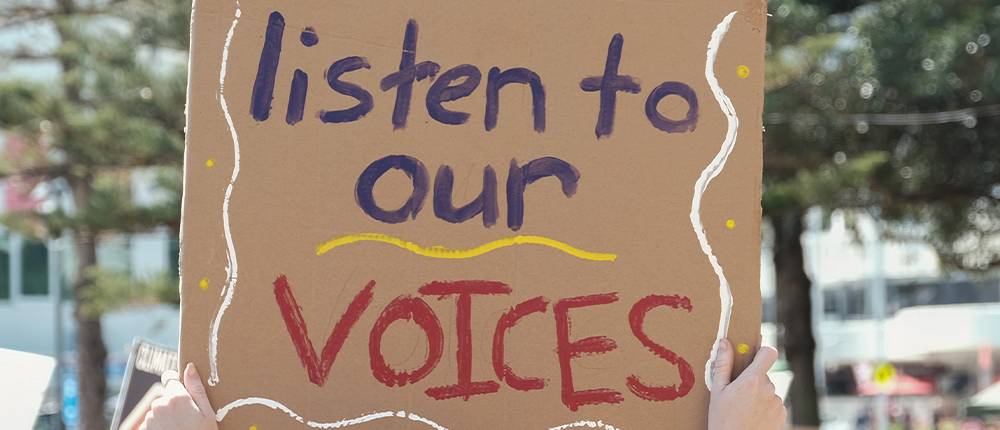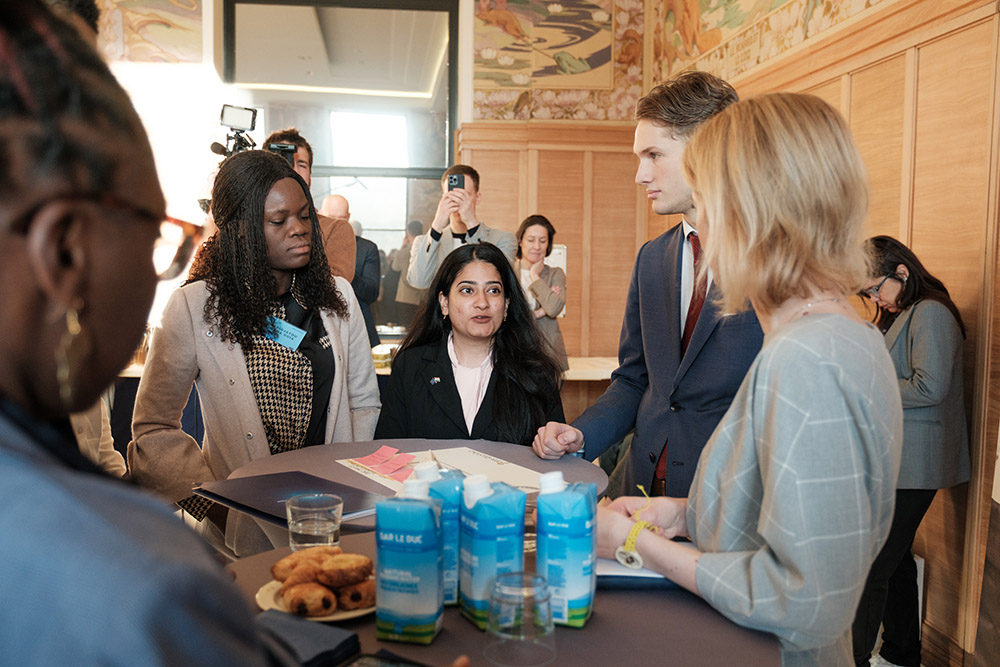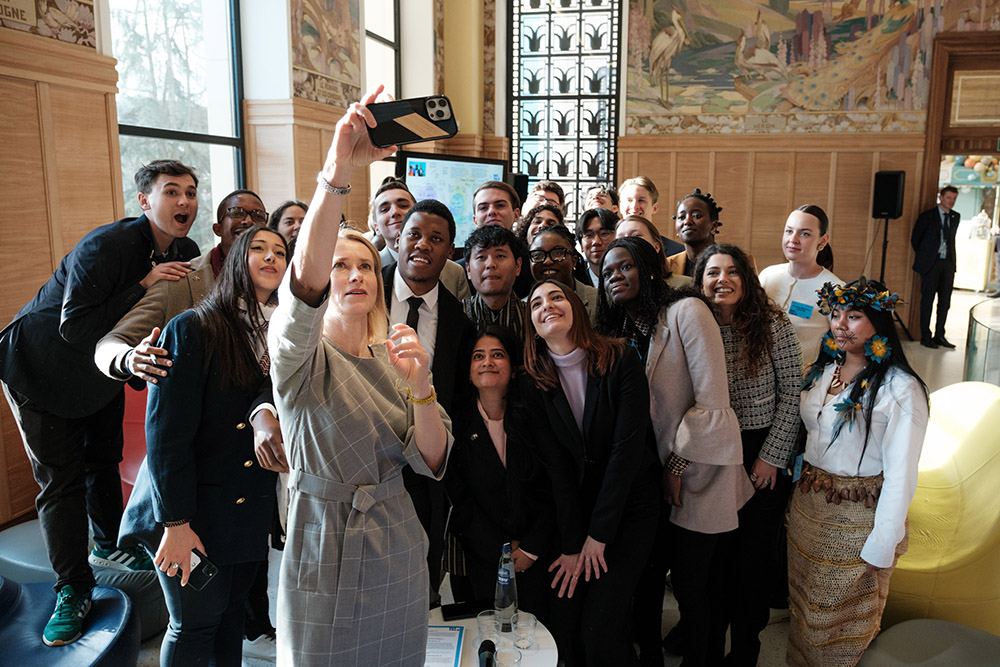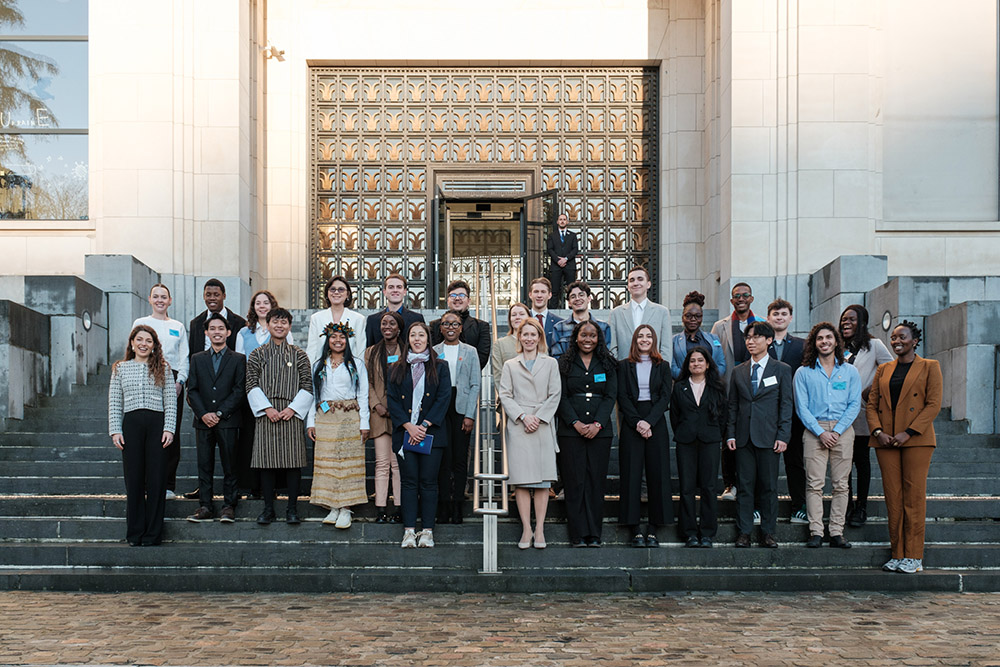Around the world, youngsters are voicing dissent against economic, social, and environmental systems that contribute to climate degradation.

As the world navigates an era marked by turbulence, ranging from geopolitical conflict to economic instability, centering climate change in policymaking has never been more crucial. Decisions made today will shape climate and sustainability outcomes not only for the remainder of this century but far beyond. Young people, who will live through these long-term consequences, have a significant stake in the future being shaped now.
Youth Voices: Diverse, Determined, yet Often Dismissed

Around the world, youngsters are voicing dissent against economic, social, and environmental systems that contribute to climate degradation. Their activism takes many forms—some subtle, others more confrontational—but not all forms of climate action have the same visibility, influence, or consequences. For democratic theorists, policymakers, and citizens alike, the challenge isn’t merely about including youth in climate decision-making. It is also about creating the space for them to question and resist the entrenched norms, policies, and lifestyles that drive environmental harm under the guise of progress and economic growth.
Youth at the Heart of Policy
On June 6, 2025, I had the opportunity to meet with the European Union’s High Representative for Foreign Affairs and Security Policy/Vice-President (HR/VP), Kaja Kallas, alongside 24 other young participants. We discussed vital topics, such as ‘Global and Climate Diplomacy’, ‘Peace and Conflict’, ‘Human Rights and Democracy’, and the EU’s geopolitical priorities.
The European Commission defines young people as individuals aged 15 to 29 years. While their inclusion in high-level discussions is a step forward, true progress requires more than just an invitation to the table, it demands that their voices be genuinely heard and taken seriously. Too often, the insights of young people are dismissed due to a perceived lack of experience, despite their proximity to the consequences of today’s decisions.
Youth voices are often sidelined in decision-making processes and frequently confined to passive roles, limiting the fresh perspectives and leadership potential they could bring. Existing mechanisms for youth engagement sometimes lack real influence or follow-up processes. Furthermore, youth perspectives are often ignored or tokenized in policymaking due to a lack of structured and specialized engagement mechanisms.
Creating opportunities for young people enables a deeper understanding of youth perspectives, fosters the introduction of fresh and innovative ideas, and ensures their representation within high-level decision-making spaces.
Key Recommendations
The Global and Climate Diplomacy team presented three key policy recommendations:
- To empower youth beyond mere participation by placing them in leadership roles, such as chairing climate change dialogues at local, national, and international levels—to bring a fresh, younger perspective to critical issues. To provide training and intergenerational mentorship for youth to maximize their impact and ensure capacity-building and knowledge-sharing among youth and between youth and institutions.
- To develop a comprehensible and easy-to-access digital platform where youth can easily find and apply for training, funding, international conferences, and job opportunities, and to promote youth-friendly policies in recruitment, such as flexible experience requirements, recognition of informal learning, unpaid labour, and volunteering positions as valuable experience. Most importantly, valuing youth’s time with monitory compensation to ensure stronger representation for underrepresented youth.
- To provide institutional, technical, and financial resources to youth-led organizations, ensuring equitable access to information and support. To promote adequately paid internships, fellowships, and job opportunities for young people instead of unpaid voluntary roles and to recognize the time and expertise of young people by compensating them for their work with honorariums or stipends.
Youth Climate Conclave: Empowering Future Leaders

At TERI’s Environment Education and Awareness (EEA) Division, we strongly believe in maintaining a meaningful connection with young people and valuing their ideas. Our mission is to build an environmentally conscious society by equipping youth with the knowledge and skills necessary to adopt and promote sustainable practices. Through our education initiatives, we engage youth from various countries and have a presence across all states and Union Territories of India, supported by various line of ministries and departments.
In this regard, a notable initiative is the Youth Climate Conclave (YCC)—a flagship project where we bring together around 100 young individuals, offering them a platform to showcase their talents and engage in dialogue on critical issues, such as climate change. Targeting youth aged 10 to 25 years, the conclave blends competition with education, encouraging participants from across the country to deliberate on pressing environmental challenges.
YCC not only empowers youth through knowledge and discussion but also fosters collaboration between young people and governments to drive collective climate action. The programme is led by the Delegation of the European Union to India, in collaboration with United Nations International Children’s Emergency Fund (UNICEF), Deutsche Gesellschaft für Internationale Zusammenarbeit (German Agency for International Cooperation) (GIZ), The Energy and Resources Institute (TERI), and Council on Energy, Environment and Water (CEEW), with the Ministry of Environment, Forest and Climate Change (MoEFCC) serving as the nodal ministry. It aims to nurture key 21st-century skills among Indian youth—including critical thinking, creativity, scientific literacy, communication, multilingualism, ethical reasoning, social responsibility, collaboration, problem-solving, and digital competence.
Call for Sustained Youth Engagement

The Youth Policy Dialogue with HR/VP Kallas reflects a collective vision for a more inclusive, impactful, and youth-centred approach to EU policymaking. However, meaningful engagement cannot be a one-time exercise—it requires sustained dialogue, structured follow-up, and concrete actions to turn commitments into lasting change as highlighted by the participants who focused on a youth-centred and action-oriented approach. To build on the momentum of this dialogue, it is essential to highlight that this is the starting point of a longer process to meaningfully engage, empower, and connect young people.
